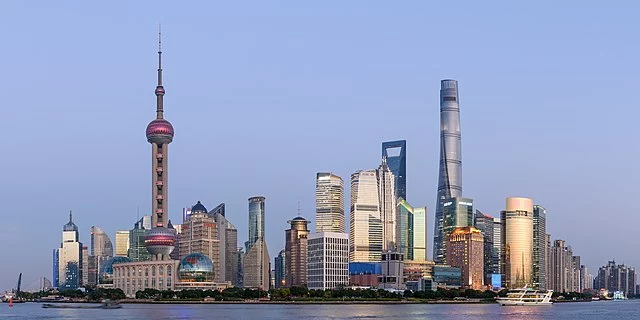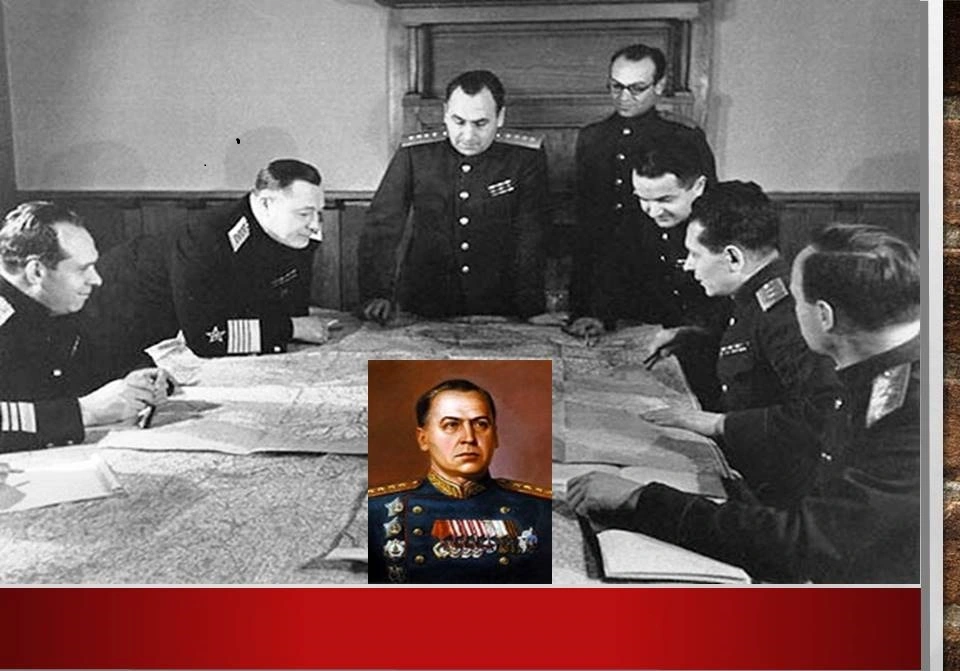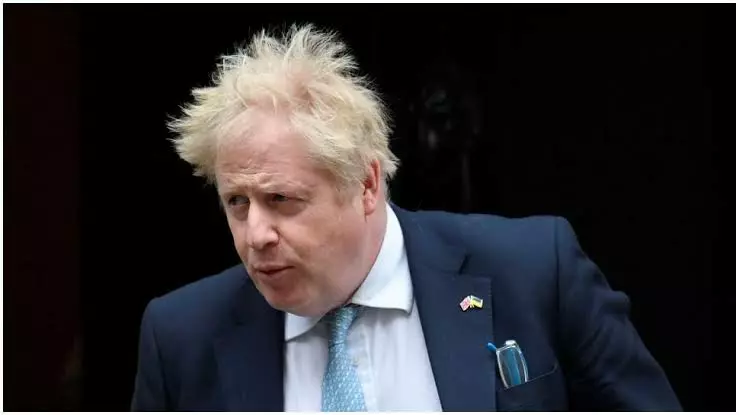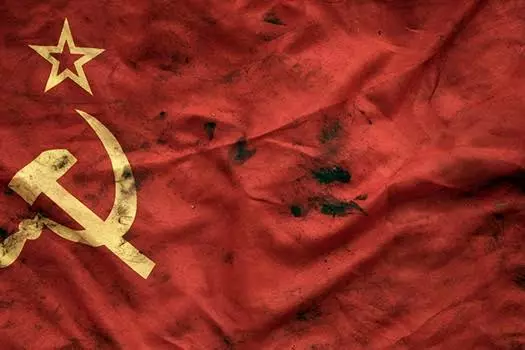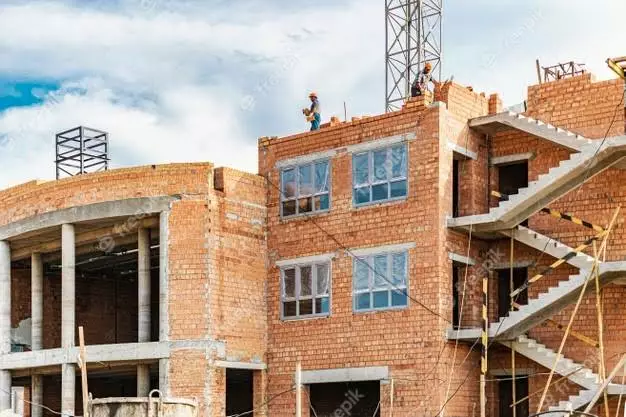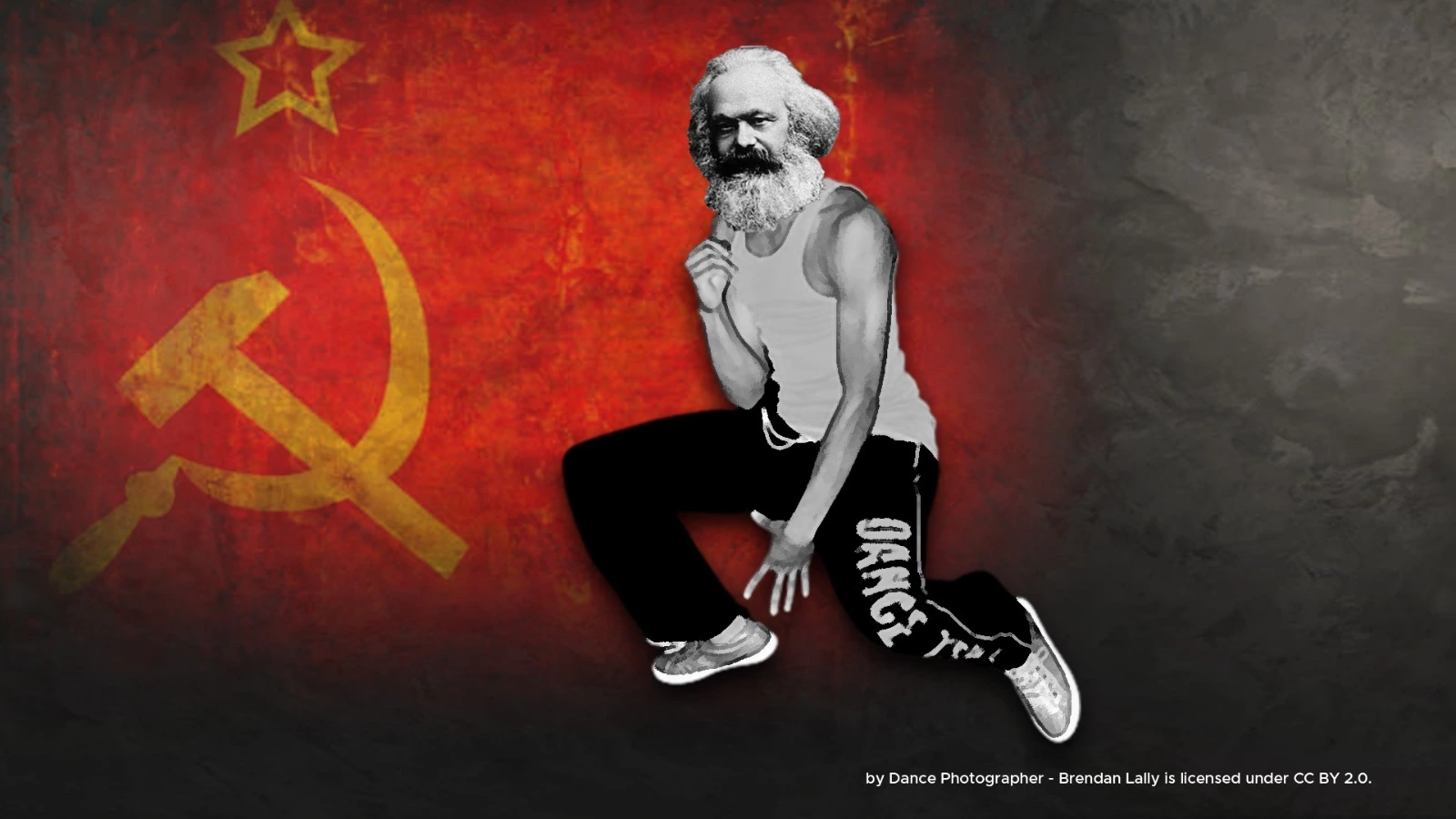The Reform and Opening policy, initiated by the Communist Party of China in 1978, has produced important transformations in the economic sphere of the country. The transformation in the structure of property has, little by little, caused the basic structure of property relations in the country to change to a system where the state/public economy remains its backbone but coexists with multiple forms of property, which exist and develop together (including domestic and foreign private property). These transformations have been accompanied by a series of ideological changes, changes that have had an influence on the most varied sectors of social life. This influence can be seen in population’s way of life, in the economy, in culture, arts, and also in politics. From an ideological point of view, Chinese society has become more "diversified", and obviously, such diversification not only has positive aspects but also produces negative consequences and brings new challenges for the development of socialism in China. In this article, I will try to outline some aspects of the formulations of the Communist Party of China on ideological work and how this work is acquiring a new role in China under the leadership of Xi Jinping.
The struggle against bourgeois liberalization in the new era of socialism
After the beginning of the reforms, an ideological trend emerged in China called “bourgeois liberalization”. The phenomenon of bourgeois liberalization, to this day, exerts a pernicious influence on China's development process and the building of a socialist culture. How does the Communist Party define this liberalization? According to Deng Xiaoping:
“Since the fall of the Gang of Four an ideological trend that we call bourgeois liberalization has emerged. Its exponents idolize the ‘democracy’ and ‘freedom’ of Western capitalist countries and reject socialism. This cannot be tolerated. China must modernize, but she must not promote liberalization or take the capitalist path, as Western countries have done.” [1]
Deng Xiaoping's warning clearly shows us that, since the beginning, the problem of bourgeois liberalization has always been the object of attention by the leaders of the Communist Party of China. Deng Xiaoping, Chen Yun, Jiang Zemin, Hu Jintao, etc, dealt with this problem several times. However, it is not wrong to say that over the years, far from being solved, it still exists and exerts considerable influence. Faced with the new political line approved after the 3rd Plenary Session of the 11th Central Committee of the CCP held in 1978, which established a break with the previous line of "taking class struggle as the main link", placing economic construction and socialist modernization at the centre of the Party's activity, a very active political tendency arose, which defended the idea that besides reforms in the economic sphere, it was also necessary to carry out reforms of a political nature, calling for more "democracy" and "freedom”. This ideological current became quite active politically, especially from the 1980s onwards, seeking to divert Reform and Opening away from its original path and direction of perfecting the socialist system, and toward the path of restoring capitalism and the bourgeois-type political system, as happened in the Soviet Union.
At first, especially among intellectual circles, an anti-Mao Zedong wave swept the country, leading to an open contestation of the resolutions presented by the CCP in its historic document On Some Problems in the History of Our Party from the Founding of the PRC to the Present Day in 1981. The document, while stating that Mao Zedong made some mistakes at the end of his life, is quite clear in its recognition and exaltation of the Chinese leader's historical role in the history of Party and Republic-building. The document clearly states that Mao Zedong's successes far outweigh his mistakes. It says:
“Comrade Mao Zedong was a great Marxist and a great proletarian revolutionary, strategist and theoretician. It is true that he made serious mistakes during the ‘cultural revolution’, but if we judge his activities as a whole, his contributions to the Chinese revolution arguably outweigh his mistakes. His merits are of the first order and his mistakes of the second order. He rendered invaluable service in founding and building our Party and the People's Liberation Army of China, winning victory for the cause of liberating the Chinese people, founding the People's Republic of China, and advancing our socialist cause. He made great contributions to the liberation of the oppressed nations of the world and the progress of humanity.” [2]
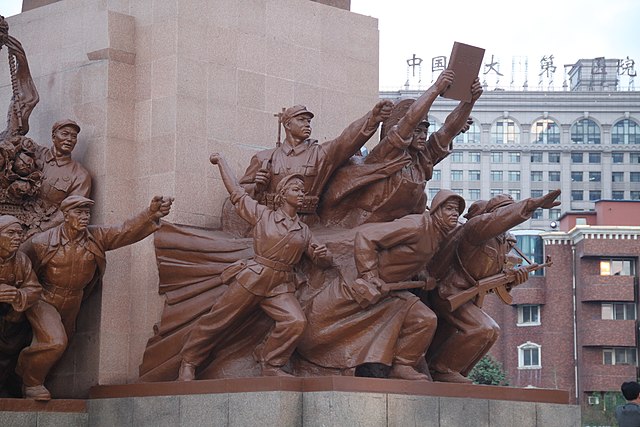
The advocates of bourgeois liberalization, taking advantage of the debates started all over the country on how to evaluate the first thirty years of China's socialist construction process, used it as an excuse to put forward their anti-communist ideas. The problem of bourgeois liberalization reached alarming levels and ended up resulting in the counter-revolutionary riots of 1989, showing that even though the Party had carried out campaigns to fight so-called "spiritual pollution" at that time, several mistakes and failures had been committed by the Party in terms of the way it conducted the work of political and ideological education of the Party cadres and of the population in general. This was recognized by Deng Xiaoping himself, who stated at that time: "Our most serious mistake was in education - we did not provide enough education for the youth, including the students." [3]
The founding leaders of the People's Republic of China have always paid great attention to the problem of ideological education. Mao Zedong, in the classic work How to Correctly Solve the Contradiction Among the People draws attention to the protracted character of the ideological struggle between the bourgeoisie and the proletariat. According to Mao Zedong:
“A long period is still needed to decide the outcome of the ideological struggle waged in our country between socialism and capitalism, since the influence of the bourgeoisie and the intellectuals who come from the old society will persist in China for a long time as a class ideology. If we do not understand this situation well, or if we do not understand it fully, we run the risk of making the gravest of mistakes, that of ignoring the need to conduct the struggle on the ideological plane.” [4]
The CCP has over the years developed a very consistent ideological political line to deal with the problem of bourgeois liberalization. Jiang Zemin, for example, stated: "The practice of ideological work confirms that if proletarian thought does not occupy its position, it will be occupied by non-proletarian thoughts. We must pay attention and learn from these lessons." [5]
However, while recognizing that the Party has always called attention to the need to strengthen ideological work, one cannot fail to recognize that Xi Jinping's coming to power represents a turning point in the Communist Party of China's political line. Particularly important for us to understand the political and ideological content of Xi Jinping's thinking is the analysis of his speech delivered at a conference on propaganda and ideological work on August 19, 2013. In this speech, while remaining faithful to the principles established by previous leaders (Mao Zedong, Deng Xiaoping, Jiang Zemin, and Hu Jintao), Xi Jinping advances important reflections and formulations on how to develop political and ideological work in China. Although at that time the Communist Party of China had not yet coined the term "new era of socialism", it is clear that the ideas contained in this important document are the compass that will guide the Party in what they call the "new era of socialism", an era that officially began as of the 19th Congress in 2017. In this speech, Xi Jinping says:
“Economic construction is the central work of the Party; ideological work is extremely important work of the Party. Everyone clearly understands the positions of both areas of work, but in some localities and departments, it is clear that there is the phenomenon that in words the importance of both aspects of work is recognized, but there is no clarity when it comes to applying this principle. Doing the ideological and propaganda work requires that, first of all, this problem be solved.” [6]
Economic construction of the country is still the central work of the entire Party. This important definition, first put forward during the 3rd Plenary Session of the 11th Communist Party of China in 1978, starts from the understanding that China, being a still backward country (especially when compared to the developed emphasising central capitalist countries), needs to put economic construction and the promotion of the development of the productive forces at the centre of its attention. As Marxist economist Zhou Xincheng recognizes, establishing economic construction as the central work is "the result of the main contradiction of society", so it cannot be understood as a subjective decision. [7] In emphasizing that ideological work is "extremely important work", Xi Jinping calls attention to the need for the entire Party to have a correct understanding of this work, recognizing that in many respects it has not been correctly performed, and has even been neglected.
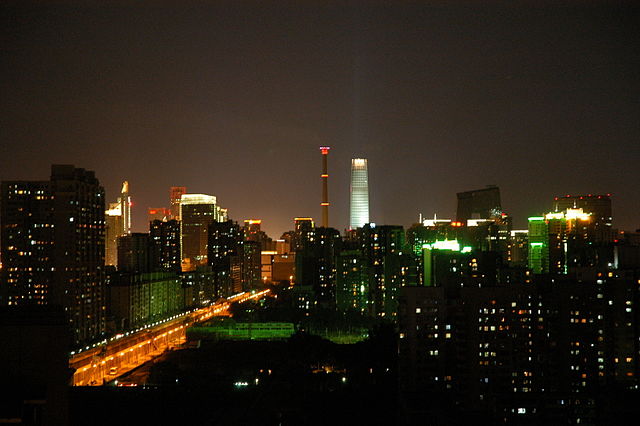
Wang Qishan, current Vice President of the People's Republic of China and a member of the Standing Committee of the Political Bureau of the Communist Party of China, in an article published in the People's Daily, emphasized that Xi Jinping has "clarified confused ideas, recovering lost positions, reversing the wrong path, establishing the authority of the Central Committee, basically reversing the situation of weakening Party leadership." [8]
The statements made by Wang Qishan are a recognition, by a senior Party and government leader, that many things need to be corrected if the cause of socialism in China is to continue advancing along a correct path. The weakening of the Party leadership is something that is closely related to ideological and educational work. Ideological work is precisely one of the main fronts on which the Party must exercise its leadership role, making sure that the mistakes made in this area are rectified, and the cause of socialism in China continues to advance in a healthy way. Ideological work, being a "work of utmost importance", cannot be neglected using the excuse that "developing the economy" is the central aspect of Party work. As former leader Chen Yun stated:
“If we promote socialist material progress and not socialist cultural and ideological progress at the same time, we will deviate from the correct path. If institutions or leading cadres forget or slow down their efforts to build socialist civilization, culturally and ideologically, they will not be able to do a good job in building socialist civilization materially and will even turn away from socialist and communist ideals. This is very dangerous.” [9]
In this sense, the events in the Soviet Union and Eastern Europe are the most concrete example of what are the results produced by the underestimation of political and ideological work, as well as of a mistaken political line, in which the Communist Party of the Soviet Union, after the death of Joseph Stalin, began to gradually distance itself from Marxism-Leninism. To illustrate with an example: American professor David Kotz, in an article where he recounts his experience in the Soviet Union, talks about an episode where he allegedly asked an official if he was a member of the Communist Party. According to Kotz, the officer replied, "Yes, I am a member of the Communist Party, but I am not a Communist.” [10]
Experiences such as those reported by Professor Kotz help us to understand what the internal ideological environment was that prevailed in the CPSU and in Soviet society itself already on the eve of its dissolution. The Soviet example should also serve as a lesson for the Chinese Communists, since this phenomenon is not uncommon in this country either. Here we are facing a problem closely related to the question of political and ideological convictions that should guide the activity and action of Party members. As for this problem, the Chinese have been aware of it from the moment it began to manifest itself in an acute way.
Thus, the problems that enabled the dissolution of the Soviet Union are the subject of constant reflection by the leaders of the CCP. Xi Jinping also went so far as to explicitly refer to the Soviet example to issue a warning to the CCP. According to Xi Jinping, when it began to repudiate Lenin and Stalin, the Soviet Union embarked on the path of historical nihilism, something that prepared the ideological ground for the justification of the "peaceful evolution" from socialism to capitalism. He asks:
“Why did the Soviet Union disintegrate? Why did the Soviet Communist Party fall from power? One important reason was that the struggle in the field of ideology was extremely intense, completely denying the history of the Soviet Union, denying the history of the Soviet Communist Party, denying Lenin, denying Stalin, creating historical nihilism and muddled thinking. Party organs at all levels had lost their functions, the military was no longer under Party leadership. In the end, the Soviet Communist Party, a great party, dispersed; the Soviet Union, a great socialist country, disintegrated.” [11]
Thus, it was on the ideological terrain, amid a lack of vigilance in the face of forces hostile to socialism, that the Soviet Union was defeated. Mao Zedong, many years earlier, analysed the importance of ideology in the process of seizing political power, whether from revolutionary or reactionary classes. He observed: "Anyone who wants to overthrow a political regime must first create public opinion and do some ideological preparatory work. This goes for the counter-revolutionary classes as well as the revolutionary classes." [12]
As soon as this problem appeared before the socialist camp and the Communist parties, the Communist Party of China was in the front line of its denunciation, going on to develop a constant ideological struggle against the revisionist ideas which were propagated by the Communist Party of the Soviet Union, ideas which in practice contributed to the strategy being put forward by US imperialism. However, especially after the beginning of the Reform and Opening, the Party at various levels let down its guard in the face of the danger of peaceful evolution, which gave free course to the strengthening of imperialist cultural influence and the propagation of bourgeois liberalization. The anti-communist protests, which peaked in 1989 in the events in Tiananmen Square, prove this thesis. Deng Xiaoping himself, commenting on the end of the Cold War and the general crisis of the socialist camp, recognized that:
“It seems that one Cold War has come to an end, but that two others have already begun: one is being waged against all the countries of the South and the Third World, and the other against socialism. The Western countries are staging a third world war without firearms. By this I mean that they want to promote the peaceful evolution of socialist countries to capitalism.” [14]
The beginning of the trade war against China, the fierce campaign promoted by imperialism on the issue of Xinjiang and the attempt to politicize and blame China for the beginning of the coronavirus pandemic, are nothing more than aspects of this ideological struggle promoted by US imperialism against Chinese socialism. To face this new challenge, it is essential that the Party and society strengthen ideological work and strengthen their understanding of Marxist theory. The question of ideological work and education, far from being something trivial, is a vital issue for the continuity and permanence of the Communist Party of China as the leading force of the Chinese nation and the cause of building socialism in China. The fact that such a problem has been recognized by the highest leaders as something pressing reveals how serious the ideological situation was in the country before Xi Jinping came to power.
References:
[1] Deng Xiaoping 邓小平. "Gao zichan jieji ziyou hua jiushi zou ziben zhuyi daolu 搞资产阶级自由化就是走资本主义道路 [To engage in bourgeois liberalization is to take the path of capitalism]," Dengxiaoping wenxuan, v.3, Renmin chuban she 人民出版社,2008, pg.123.
[2] Communist Party of China. Resolution on Certain Historical Issues in the History of Our Party since the Founding of the People's Republic of China - Adopted by the Sixth Plenary Session of the Eleventh Central Committee of the Communist Party of China, 1981. Accessed at: https://www.marxists.org/portugues/tematica/1981/06/27.html
[3] Deng Xiaoping 邓小平. "Women youxinxin ba zhongguo de shijian hao chengji 我们有信心把中国的事情做得更好 [We are confident that we can handle China's affairs well]," Dengxiaoping wenxuan, Renmin chubanshe 人民出版社,2008,pg.327
[4] Mao Tsetung. On the Correct Handling of Contradictions Among the People: Selected Readings from the Works of Mao Tsetung, Foreign Language Press, 1971, pg.
[5] Jiang Zemin 江泽民. "Zai jinian zhongguo gongchandang chengli qishiba zhounian zuotan hui shang de jianghua 在纪念中国共产党成立七十八周年座谈会上的讲话 [Speech commemorating the 78th anniversary of the founding of the Communist Party of China]," 1997. Accessed at: http://www.peopledaily.com.cn/item/ldhd/Jiangzm/1999/jianghua/jh0007.html
[6] Xi Jinping 习近平. "Ba xuanchuan sixiang gongzuo zuo de geng hao 把宣传思想工作做得更好 [Do ideological and propaganda work better]." Lun jianchi dang yiqie gongzuo de lingdao 论坚持党一切工作的领导, Zhongyang wenxian chuban she 中央文献出版社, 2019, pg. 23.
[7] Zhou Xincheng 周新城. "Guandu zhongguo thesis shehui zhuyi de ruogan lilun wenti 关于中国特色社会主义的若干理论问题 [On some theoretical problems of socialism with Chinese characteristics]," Jingji ribao chubanshe 经济日报出版社,2015, pg. 357.
[8] Wang Qishan 王崎上. "Kaiqi xin shidai, ta shang xin zhengcheng 开启新时代,踏上新征程 [Starting a new era and embarking on a new journey]," Renmin Ribao 人民日报, 2017, November 7, 2017. Acessado em: http://www.xinhuanet.com//2017-11/07/c_1121915946.htm
[9] Chen Yun 陈云. "Bixu jiuzheng hushi jingshen wenming jianshe de xianxiang 必须纠正忽视精神文明建设的现象 [We should correct the tendency to neglect the establishment of spiritual civilization]," Chenyun Wenxuan 陈云文选, v.3, Renmin chubanshe, 2015, pg. 354.
[10] David M. Kotz 大卫-科茨. "Sulian jieti yuanyin shi jingying jituan zhuzhang ziben zhuyi 苏联解体原因是精英集团主张资本主义 [The reason for the collapse of the Soviet Union was that elitist groups advocated capitalism]." Zhongguo jingji wang 中国经济网, 2013. Accessed at: http://www.wyzxwk.com/Article/lishi/2013/09/306710.html
[11] Xi Jinping 习近平. "Guanyu jianchi he fazhan zhongguo thesis shehui zhuyi de ji ge wenti 关于坚持和发展中国特色社会主义的几个问题 [Some questions on maintaining and developing socialism with Chinese characteristics]," Qiushi 求实, n.7, 2009. Accessed at: http://www.qstheory.cn/dukan/qs/2019-03/31/c_1124302776.htm
[12] Mao Zedong. Speech At The Tenth Plenum Of The Eighth Central Committee, 1962. Accessed at: https://www.marxists.org/reference/archive/mao/selected-works/volume-8/mswv8_63.htm
[13] Liang Zhu 梁柱. "Mozedong fanfa sixiang yong bu tuishai 毛泽东反腐思想永不褪色 [Mao Zedong's thoughts on corruption will never dissipate]," Zhongguo shehui kexue bao 中国社会科学报, 2014. Acessado em: http://dangshi.people.com.cn/n/2014/0116/c85037-24142270.html
[14] Deng Xiaoping 邓小平. "Jianchi shehui zhuyi, fangzhi heping yanbian 坚持社会主义,防止和平演变 [Adhering to socialism and preventing peaceful evolution]," Dengxiaoping wenxuan 邓小平文选, v.3, Renmin chubanshe 人民出版社, 2008, pg. 344.
